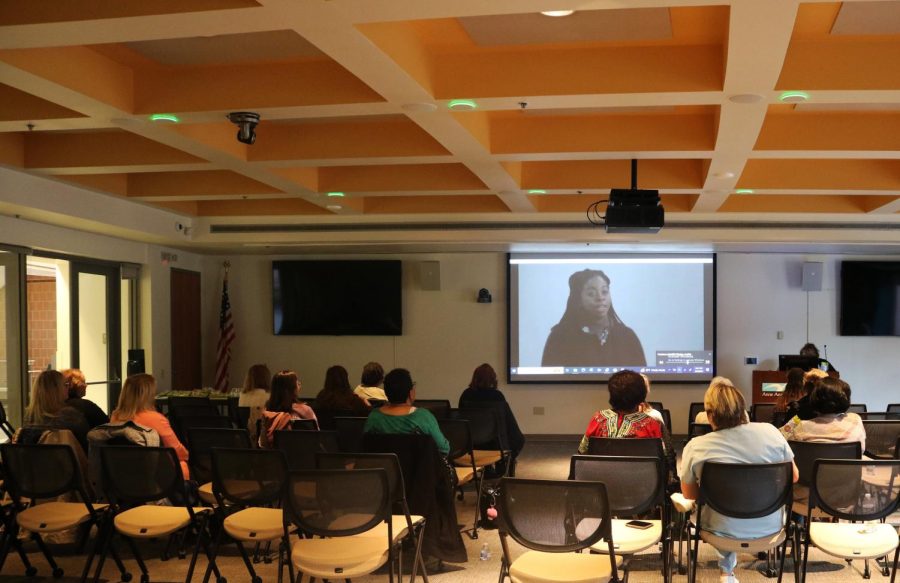Health Sciences coordinator hosts documentary showing
Christina Thurston, the program operations coordinator in the School of Health Sciences, hosted a documentary showing on the Arnold campus on Thursday.
February 10, 2023
An AACC faculty member hosted a documentary screening on Thursday that examines the lack of education surrounding ethnic hair care.
Christina Thurston, the program operations coordinator in the School of Health Sciences, directed the documentary “Boldly Beautiful: Ethnic Hair Care on the Great Plains.” The documentary discusses the struggles Thurston faced when she moved from Maryland to South Dakota when it came to securing hair products and finding salons that could accommodate her.
“There’s still, kind of, this stigma of when black women wear their hair natural that we look unkempt,” Nicole Williams, academic chair of human services and member of the Black History Month Committee, said.
Williams added that alongside not having access to the proper hair products, there is a societal stigma about black hair.
“And that’s why they had to do the CROWN Act, because there were people that were still being discriminated against at their job,” Williams added.
The CROWN Act prohibits discrimination based on hairstyle or texture and has been passed in more than 18 states.
In the documentary, Thurston establishes the Boldly Beautiful: Ethnic Hair Care Symposium, an event where she brought licensed hair stylists to help people better understand how to take care of Black hair. The documentary focuses on her experiences in South Dakota but concerns about how to do black hair and the way that cosmetologists are taught exist even in places like Maryland where products are more accessible, Thurston said.
Thurston said she hopes people will become more aware of the issue and learn more about it.
“Because here in Maryland, while you can find more products, the education isn’t necessarily there on how to use the products,” Thurston said.
Heidi McLean, academic chair for Medical Assisting, said that the documentary impacted her.
“My daughters are actually multiracial,” McLean said. “I was getting emotional, like, thinking about my daughters and their own hair journey. And just the things that these women, you know, have to go through. So, it definitely touched me. … Because you don’t usually think outside your box. So, when you live in a certain area, you don’t think how it’s affecting … [how] other people have to live. You just take for granted that we have so many services in Metro Baltimore area.”












